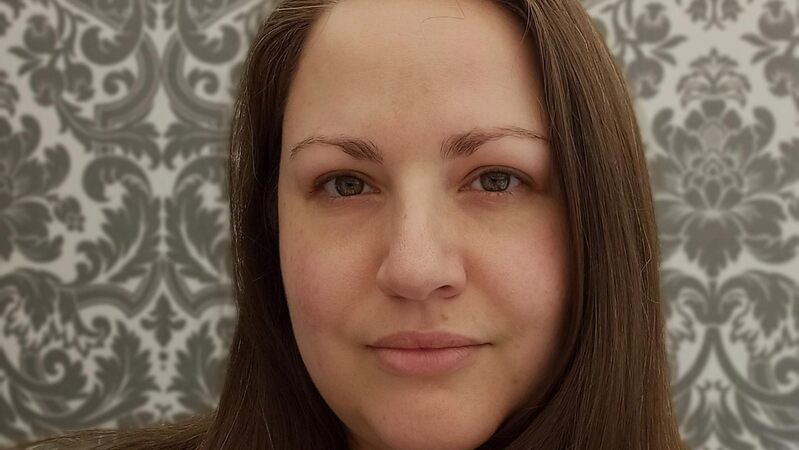You are viewing your 1 free article this month. Login to read more articles.
Joan Bakewell's Desert Island Books
Great Expectations
by Charles Dickens
Because it’s Dickens’ year, I felt he should be on the list. Great Expectations has been done so often on television and film, but not even the David Lean film does justice to the pictures in your imagination because it’s so evocative. It’s got Dickens’ grotesque characters and the enormously poignant figure of Pip at the centre of it, trying to make his way through life. I find that in the book the characters are more vivid than in the adaptations. It’s a marvellous story and has this brilliant structure. I beg everyone who hasn’t read it for a long time (or at all) to do so. I must have read it first when I was about 14, doing the classics – I’m quite old, so that’s what you did in my day. There was no telly, and actually books were scarce because there wasn’t much paper – books were very precious. You cherished books and they were a treat.
The Great Gatsby
by F. Scott Fitzgerald
Another classic and an obvious one. You can reread and reread it and find new things in it every time; you find that you like people more than
you once did or that you now
hate them. The story unfolds so beautifully about what people are like and what they’re about – it’s a very good plot! Accidents, blame, shame: it’s really terrific. If there’s something about the era, it’s in the writing, in the attitude, in the yearning – the feeling that Gatsby has it all in some way and the realisation that it’s all an absolute shambles. As an interesting aside, at Alan Coren’s (non-religious) memorial service, one of the
things they read was the last
page of The Great Gatsby. It is absolutely wonderful, romantic with a bit of lemon juice in it to turn it a little sour, which makes
it all the more poignant.
The Good Soldier
by Ford Madox Ford
This is so interesting because it’s a story in the first person and we come to realise – I don’t want to say too much – that what we are being told by the narrator may be at odds to what is actually happening. It’s a pre-First World War story of two couples who go to a spa for their health and the intrigues that occur between them – these intrigues multiply and multiply as the story goes on. I picked it up about ten years ago because I was fascinated by the title and I’d heard that it was hailed as a great novel.
I was completely amazed when I read it; I thought it was going to be about trench warfare or something. It came as a great surprise.
A Long Long Way
by Sebastian Barry
Sebastian Barry is an Irish writer to whom I am completely devoted, I think all his books are fascinating. This is the story of an Irishman who enlists in the British army in the First World War and goes to fight on the front in northern France. Barry’s portrayal of the trenches
is just so terrifying and brilliant.
But back home the Irish War of Independence is afoot – the Irish are rebelling against the English and he’s there fighting for the British. He goes back to Dublin and faces huge conflict. It’s a marvellous story, I couldn’t put it down. I was so deeply moved by it: it’s one of those books where you put it down and look out of the window and you sigh. You think:
I’ll never have that experience again of reading that book for the first time. I put A Long Long Way forward for my book group and there was universal praise – which is bad for a book group because they depend on disagreement.
World on Fire
by Amanda Foreman
I wanted to choose a history book because I did a history degree, and this is a very serious piece of scholarship. It’s about the relationship between America and Britain during the American Civil War, the struggle between the north and the south, and the damage it did to
the export of cotton – which came to Lancashire, which is where I come from and why I was drawn to this. Lancashire mills were actually threatened with closure during the Civil War. It left Britain in a great dilemma as to whether to side with the south, while both sides were commissioning Scottish shipbuilders. There were huge diplomatic embarassments. Amanda Foreman dredged the archives on both sides of the Atlantic for diaries, diplomatic correspondence, anecdotes, family stories, biographies, military history – it is the most amazingly detailed story, and in it’s way you can’t put it down, so you feel you are eating a vast array of goodies. It reads like Gone with the Wind.
Death and the Penguin
by Andrey Kurkov
This is hilarious and so bizarre in its idea of a man having a penguin. Apparently it’s based on fact, in that in Russia they had to close down a zoo and they offered the contents of it to people. So the hero has a penguin as
a friend. He writes obituaries, but under whose command you’re not quite sure, and he starts to write them
before the people have died. Then there’s all sorts of involvement
with women and spies and
odd characters of uncertain background. It’s a brilliant satire coming from a great Russian tradition. I’m actually quite serious, so it’s always a surprise when
a book makes me laugh because
I don’t go in for ‘funny’ books. I’m
a great fan of Wodehouse, and
I thought of choosing him here, but then I thought that everyone would know Wodehouse already. If I’m feeling ill, send me a Wodehouse and that will cheer me up.
Chronicle of a Death Foretold
by Gabriel García Márquez
I love all of Márquez’s novels and think they’re all magnificent. Chronicle of a Death Foretold is smaller than the others and very complete, brilliantly conceived from start to finish. If you were by the pool for three hours you could read it in a sitting. It’s got all of his ingredients: the startling opening line; the story of a death that everyone knows will happen, including the protagonist… and yet it is still full of tension. How does he bring that about? It’s a thriller, but it’s also about small-town chicanery and menace and jealousies, and all of that wonderful dusty stuff that he conjures up.
I love living in his world and this one is a particular gem. One of the things I decided when I started writing novels was that I wouldn’t read trashy novels because then I wouldn’t pick up bad habits – but I wish I could pick up good habits! To be able to write like Márquez is beyond my reach. I write good narrative stuff, but these people are on another planet. I’m not competing – these are my gods.
Memoir
by John McGahern
I did want to have a memoir on the list because I like people writing about their lives. John McGahern is so poignant on the love of his mother and his Irish background – it’s poetry really, immaculate and sensitive and so controlled, spare but exact. He can make the walk to school with his mother read like Proust. My books are also about relationships – She’s Leaving Home is about a girl and her parents, but they’re much stickier than his and mine is much darker. I’ve been a parent and I’ve been a child: we can all plug into that kind of thing.
Time Will Darken It
by William Maxwell
Not enough people read William Maxwell. He was an editor at the The New Yorker for 40 years and edited people like John Updike and
John O’Hara. He wrote loads of short stories and this is one of
his novels. It’s about a family
and starts with something quite humdrum: a husband and wife inviting someone to stay. It slowly evolves in the most subtle and beguiling way. Maxwell is such a sophisticated writer, he reveals people’s capacity for lying and
self-deception, for mutual emotional need, social climbing, social rivalries, women between themselves and their relationship with children. He’s masterly. I don’t know why he’s not very famous.
She's Leaving Home by Joan Bakewell is published by Virago.
We Love This Book is the proud sponsor of Joan Bakewell's appearance at The Telegraph Hay Festival on 3 June at 2. 30 p.m.













